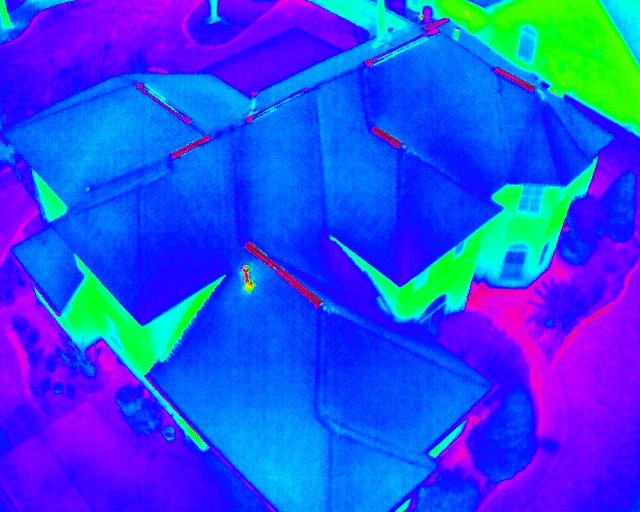The Role of Drones in Modern Property Inspections
Written by a Certified Drone Pilot & Professional Inspector
20 years ago, accessing roofs and hard-to-reach exterior elements was often time-consuming, risky, and sometimes even impossible. Today, drone technology has transformed how I conduct inspections—making them safer, faster, and more thorough than ever before.
As both a licensed home inspector and FAA-certified drone pilot, I combine traditional expertise with cutting-edge technology to uncover what others miss.
Overview of a Slate roof. Difficult access and very slick roof makes this the perfect candidate for a Drone Inspection!
What Drones Add to the Inspection Process
Drones, equipped with high-resolution and sometimes thermal cameras, allow me to:
Inspect steep or fragile roofs without climbing
Capture a full aerial view of the property layout
Examine chimney caps, gutters, and flashing safely
Detect storm damage quickly and with precision
Document evidence clearly for reports and insurance
For larger homes or commercial buildings, drones give access that ladders and binoculars simply can’t match.
Did you know? When a roof is walked on, even a brand new asphalt shingle roof, damage can happen to the roof. Depending on the type of roof, some damage can be more extreme than others, but in almost all cases, walking on a roof will cause damage!
A thermal overview of a two story home with very steep roof sections.
Why Aerial Perspective Matters
One of the biggest advantages of drone use is the ability to see the big picture. From above, I can assess:
Drainage patterns and grading issues
Tree encroachment or roof debris
Solar panel condition
Hidden damage on second- and third-story roofs
In post-storm inspections, drones often reveal cracked shingles, wind-lifted flashing, or hail strikes invisible from ground level.
When Drone Inspections Are Most Valuable
Drone-assisted inspections are especially useful in these scenarios:
Storm or hurricane recovery
New roof documentation for warranty or insurance
Pre-listing inspections to showcase roof condition
Historic homes where foot traffic might cause damage
Multi-story or steep-slope structures
They’re not a luxury—they’re a smart solution for safety, accuracy, and efficiency.
My Drone Inspection Process
Every drone inspection I conduct is FAA Part 107 compliant, fully insured, and performed using commercial-grade equipment. I capture both still images and 4K video when needed, and all findings are integrated into a detailed digital report for clients.
I also use drone inspections in conjunction with thermal imaging, which can expose roof leaks or energy loss from above—another layer of value.
Final Thought: Safety, Clarity, Confidence
Drones are not just about cool tech—they’re about delivering better inspections. Safer for the inspector, clearer for the client, and more comprehensive for your investment. Whether you're buying, selling, or maintaining your property, an aerial inspection could make all the difference.
Ready to take your inspection to the next level? I’m here to help—with both boots on the ground and eyes in the sky.
Schedule a drone-enhanced property inspection today and see your home from a whole new angle.


